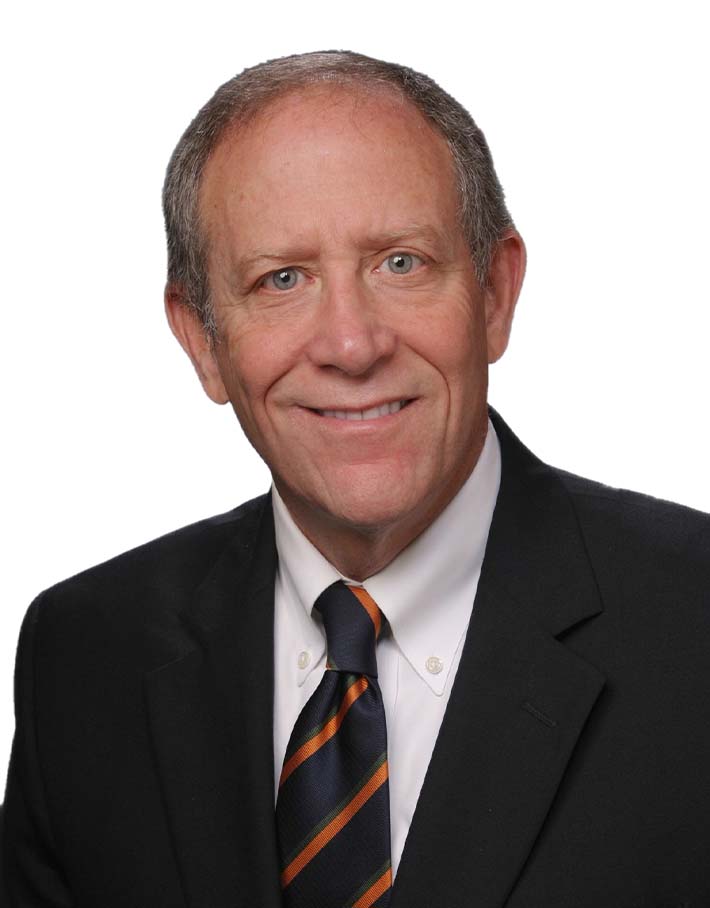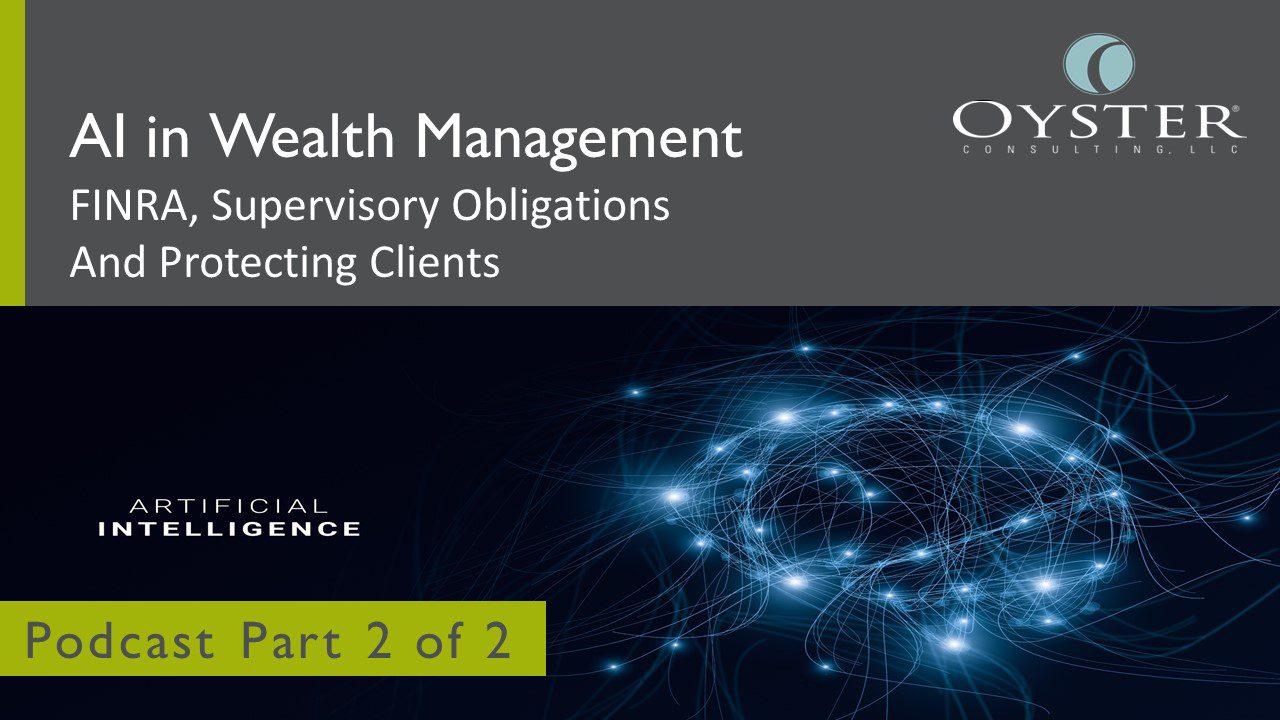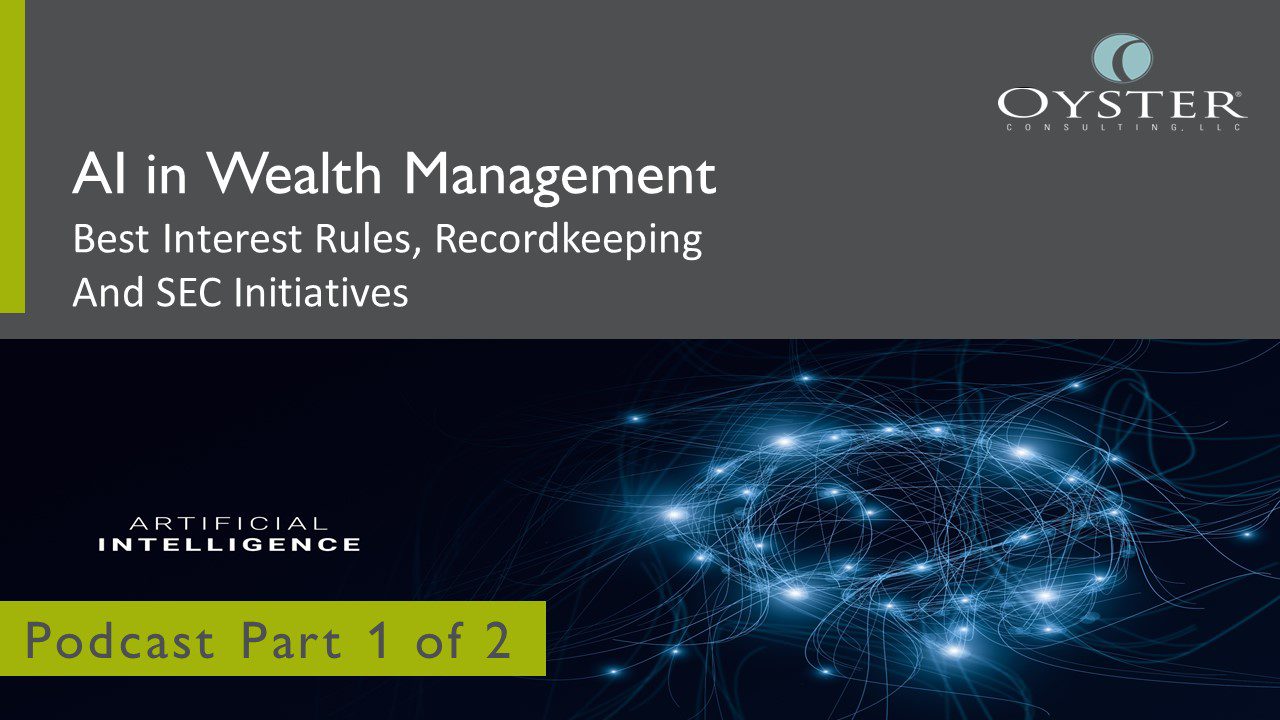Join Oyster Consulting’s Jeffrey Hiller in his new podcast mini-series, CCO – Behind the Scenes, as he shares his vast experience as both a CCO for several global investment firms and Senior Counsel for the SEC’s Division of Enforcement. Jeffrey literally helped write the book on modern regulatory compliance. Being CCO is more than just checking boxes. There are office politics to navigate, nuances to dealing with regulators and board members, and of course, ethical issues. Listen and learn in these short discussions as Jeffrey shares his real experiences and lessons learned from his decades in the industry. Some things you just won’t get from a textbook, such as cultivating the “tone at the top,” document production during an exam, escalation, dealing successfully with Boards, and repeat violations, to name a few.
Transcript
Transcript provided by Temi transcript services
Jefferey Hiller: Welcome to CCO Behind the Scenes, an Oyster stew podcast mini series. I’m Jeffrey Hiller, Managing Director at Oyster Consulting, former Senior Counsel for the SEC’s Division of Enforcement. I’ve also served as CCO in many well-known global investment firms. I’ve seen both sides. I’ve been on both sides, and I literally helped write the textbook for U.S. Modern Regulatory Compliance. Being CCO is more than just checking boxes. There are office politics to navigate, nuances to dealing with regulators and board members, and of course, ethical issues. Join me as I share my real experiences and lessons learned from my decades in the industry. Some things you just won’t get from a textbook. The first thing I thought I’d talk about is one that , uh, has always sort of puzzled me from the beginning of my career. I’ve probably managed 25 to 30 SEC exams over my career, and one of the questions, or first questions, that regulators always ask is, “What is the tone at the top?” I always find that an interesting question because how do you measure that and what does it mean, and what do you do about it? So after a few times, I’ve come up with a system where the first thing I do is, at the initial meeting, I always have the CEO to at least stop in and say hello and greet the regulators and know that they’re available. But more importantly, I develop a plan over the course of years so that I can answer this with substance. What I do and how I measure it is, I ensure that the CEO, when he has town halls or she has town halls, they raise questions and raise the importance of compliance for the firm. And then, along with business and other things, that that’s really critical. The other thing which I think is most persuasive to regulators is that I ensure that my CEO rewards good compliance and sanctions bad compliance, and we build a track record of that. So when we’re asked, how do we prove tone at the top, it’s positive. I point to the specific actions that we take, and I’ve been told many times by regulators that that’s a unique, but very effective, way to do it. That sort of falls into a second item I talk about, which is, before the SEC ever comes in, they send you a document production list. You usually are given 2-3 weeks to produce all these documents. My experience has been throughout my career, that in the course of producing these documents, we also find exceptions that we weren’t aware of. And there’s no reason to panic. There’s no reason to be concerned because you can use these exceptions to your advantage in the course of document production, right ? If you find exceptions or compliance violations, fix them and make a list of them. When the SEC comes in for your first meeting, you should say, during the course of document production, there are items that we found that are not major, but they’re out of compliance and as is our practice, we complete them and fix them immediately. Here they are, we have nothing to hide. We want you to know how the company operates. That’s another instance where the SEC really appreciates the candor and the openness of what we’re doing, and shows the firm’s commitment to doing the right thing. Another item I thought I would address is working with Boards. If you’re a CCO of an investment company, then by statute you have to meet with the Board on a routine basis in private meetings and share with them what you’ve learned, and if there are any problems that they need to know about. That’s pretty straightforward. You’ve got to be open and honest with the Board. This applies whether it’s an investment company and asset manager, or a broker-dealer. You should be presenting, not a worst case scenario, but the findings you have. Again, what you’re doing to reconcile them. If you find a problem, always look for more than one solution. Often the other thing I’ve done in practice, suggested by a former colleague who was a he a d of the Division of Investment Management at the SEC, wa s to always look the evening before the Board meeting, check the SEC website, see if there’s anything new that the CEO could be asked the next morning at the Board meeting. These Boards fly in from all around. In fact, one time, I can’t recall exactly what it was, but the night before a Board meeting , the SEC came out with something that could impact everybody. So I left the one sort of paragraph bullet point with the CEO, and sure enough, he got it in the morning, went to the Board meeting at eight. One of the board members said, “Did you happen to see this in the news?” And my CEO was able to say, “Yes, I have a little write up here. We can discuss it with you.” Well, that engendered so much gratitude from him, and he got a sense of I’m looking out for him. I’m looking out for our firm . I’m looking to see that if there is a change in the SEC’s policies or procedures, their suggestions, that we’ve jumped on them immediately. And I can guarantee you, if you do that for the next 30 days, you’re going to find something that the SEC is pronouncing, that you can use.
Oyster Consulting: 6:22
[music]
Jefferey Hiller: 6:33
Thanks for listening, and I hope you found this helpful. If you like what you heard, make sure to follow the Oyster Stew podcast on whatever platform you listen to. Oyster consultants are industry practitioners – we aren’t career consultants. We’ve done your job and know the issues you face. If you’d like to learn how we help firms start, run, protect and grow their business, visit our website at www.oysterllc.com.




